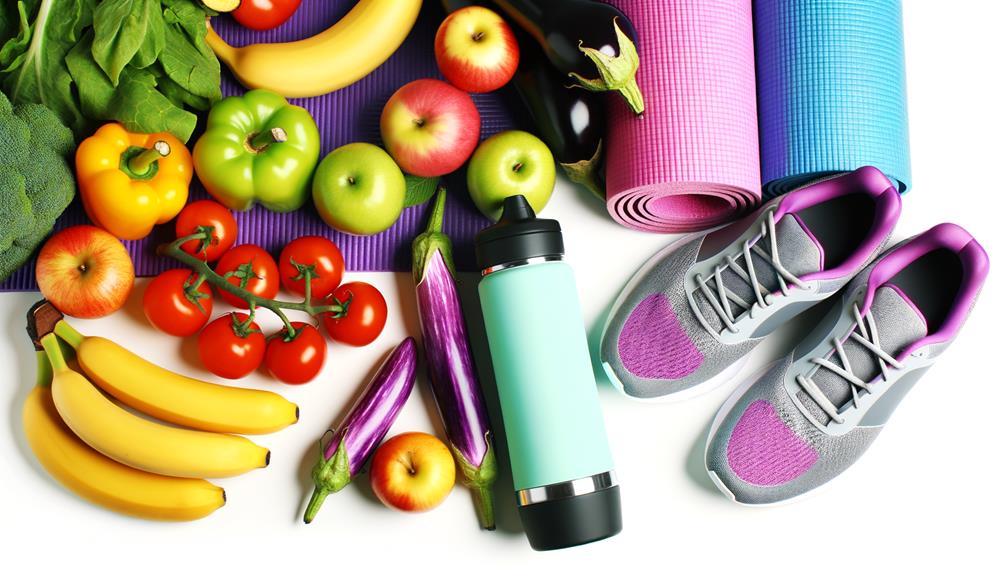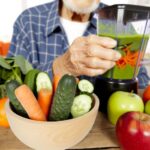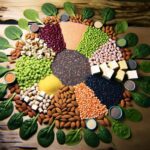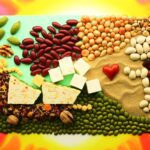As you stand at the intersection of dietary change and physical well-being, embarking on a plant-based diet offers a path steeped in both ethical values and health benefits, yet it demands thoughtful adjustments to your fitness regimen. You’re not just choosing to exclude animal products; you’re embracing a lifestyle that intertwines compassion with personal health. Acknowledge that your body’s nutritional needs will shift, and it’s crucial to adjust your protein sources, ensuring your muscles receive the fuel they need from plant-based alternatives. Similarly, modifying your workout intensity can align with your new energy levels, and integrating the right plant-based supplements could bridge any nutritional gaps. While paying close attention to iron and calcium intake is essential, monitoring your energy levels becomes a delicate dance of intake and output. As you navigate these alterations, remember that the journey to a plant-based diet is as much about nurturing your inner self as it is about transforming your physical capabilities. Let’s explore how these fitness alterations can harmoniously blend with your new dietary choices, fostering a balance that supports both your values and your vitality.
Key Takeaways
- Diversify protein sources with legumes, nuts, tofu, and plant-based protein powders to meet nutritional needs on a plant-based diet.
- Adjust workout intensity according to energy levels and incorporate cycles of higher and lower intensity to prevent burnout.
- Consider using plant-based supplements such as vegan-friendly protein powders, fiber supplements, vegan fat burners, and vitamin and mineral supplements to support muscle growth, digestion, weight management, and address potential nutrient deficiencies.
- Ensure strong muscles and bones by prioritizing iron and calcium intake through a diverse range of plant-based foods and seeking guidance from a registered dietitian for nutrient needs.
Adjust Protein Sources
When transitioning to a plant-based diet, it’s crucial to diversify your protein sources by including foods such as legumes, nuts, and tofu to maintain muscle health and recovery. Your body thrives on variety, drawing from a rich tapestry of nutrients. Plant-based protein sources offer a spectrum of essential amino acids, the building blocks your body needs for resilience and vitality.
To adequately fuel muscle growth and repair, you’ll need to consider your protein needs, which are typically calculated as grams of protein per kilogram of body weight. Embrace a rainbow of legumes, from lentils to chickpeas, which are not only protein-packed but also heartwarming emblems of culinary diversity. Nuts and seeds can be sprinkled into meals, effortlessly elevating your dishes with both nutrition and love.
For those times when you’re pushing your limits, protein powders derived from plants like pea or rice can be a convenient boost, especially post-workout. Remember, it’s not just about the quantity of protein but also the quality—ensuring you get all essential amino acids.
And if you’re ever uncertain, a compassionate guide in the form of a registered dietitian can chart a course for your protein needs, ensuring your plant-based journey supports both your body and the spirit of service to others.
Modify Workout Intensity
While ensuring your body gets a variety of plant-based proteins is essential, it’s equally important to listen to its cues when adapting workout intensities to your new dietary habits. As you embark on this journey, consider the symphony of your body’s needs and the harmony of physical activity with your caloric intake.
Here’s how to modify your workout intensity mindfully:
- Adjust According to Energy Levels: If your energy balance feels off or you’re experiencing fatigue, it may be a sign to decrease the intensity or volume of your workouts. Caloric needs can shift with dietary changes.
- Periodize Training: Incorporate cycles of higher and lower intensity to prevent burnout. This allows your body to adapt, fostering both adaptation and performance.
- Active Recovery: Integrate low-intensity workouts or complete rest days. These are crucial for maintaining energy density without overtaxing your system, allowing for continuous progress.
- Monitor and Adapt: Use tools like heart rate monitoring or RPE to gauge your exertion. Remember, the goal is to maximize performance without compromising your wellbeing.
Embrace the process of tuning into your body as you support others in their wellness journeys. Understanding the unique aspects of plant-based diets will empower you to thrive in your physical pursuits.
Incorporate Plant-Based Supplements
To complement your plant-based diet, consider incorporating vegan-friendly protein powders that can help fuel muscle growth and enhance recovery after workouts. As you dedicate yourself to serving others, it’s vital to nourish your body with the right nutrients. Plant-based supplements are essential for vegan athletes who may need an extra boost in protein foods, omega-3 fatty acids, and vitamins like vitamin D.
Remember that while whole food should be the cornerstone of your nutrition, fortified foods and supplements can fill in the gaps. For a balanced approach to sports nutrition on a vegan diet, look into the options below:
| Supplement Type | Benefit |
|---|---|
| Protein Powder | Supports muscle repair and growth |
| Fiber Supplement | Aids digestion and promotes fullness |
| Vegan Fat Burners | Enhances metabolism for weight management |
| Vitamin & Minerals | Addresses potential nutrient deficiencies |
| Omega-3 Fatty Acids | Supports heart and brain health |
Consult with healthcare professionals to ensure these additions align with your dietary needs. By doing so, you’ll maintain a compassionate lifestyle that’s not only kind to the planet but also empowering your own well-being. Embrace healthy fats and a spectrum of plant-based supplements to keep your body strong and energized.
Focus on Iron and Calcium
Ensuring you’re getting enough iron and calcium on a plant-based diet is crucial for maintaining strong muscles and bones. As you embark on this journey, it’s essential to be mindful of these minerals, especially if you’re passionate about serving others through fitness and wellness. Here are steps to make sure you’re on the right track:
- Diversify Your Plate: Include iron-rich legumes like lentils and chickpeas, and don’t forget tofu and spinach. Almonds, figs, and fortified plant-based milks can be your go-to sources for calcium.
- Enhance Absorption: Combine iron and vitamin C by adding a squeeze of lemon to your bean salads or serving bell peppers with your lentil soup to maximize iron uptake.
- Bask in the Sun: Get your vitamin D from sunlight or fortified plant-based milks to aid in calcium absorption, keeping your skeletal structure resilient.
- Seek Professional Guidance: When in doubt, consult a registered dietitian to navigate dietary restrictions and prevent nutrient deficiencies.
Adopting a vegan diet doesn’t mean compromising on your health. It’s about making informed choices that align with your compassionate lifestyle while ensuring your body doesn’t miss out on essential nutrients. Keep learning, keep growing, and let your plant-based journey be a testament to your dedication to wellness.
Monitor Energy Levels
As you nourish your body with iron and calcium-rich foods, also keep a vigilant eye on your energy levels to maintain peak performance during workouts. It’s essential to ensure energy sustenance, especially when you’re pushing your limits. A plant-based diet, while incredibly healthful, may lead to low energy availability if you’re not mindful. This is because you might consume fewer calories inadvertently, thanks to the high fiber content of plant sources that promote satiety.
To counteract this, consider integrating calorie-dense foods such as sweet potatoes, whole grains, and chia seeds into your meals. These not only offer sustained energy but also pack a nutritional punch. Don’t forget to add a variety of fresh fruit to the mix for a quick, natural energy boost.
Frequently Asked Questions
How Do You Get Fit on a Plant-Based Diet?
To get fit on a plant-based diet, balance your macronutrients, ensure sufficient caloric intake, and focus on nutrient-dense foods. Incorporate strength training, consume recovery foods, and consider vegan supplements to maintain energy and muscle repair.
How Do You Not Lose Muscle on a Plant-Based Diet?
To maintain muscle, you’ll need ample plant-based proteins, amino acids, and essential fats. Combine resistance training with proper caloric intake, nutrient timing, and recovery nutrition. Focus on whole foods and consider iron absorption and supplements.
How Long Does It Take for Your Body to Adjust to a Plant-Based Diet?
Wondering how your body adapts to plant-based eating? It varies, but with nutrient monitoring, careful meal planning, and focusing on protein sources, you’ll manage cravings, ensure vitamin intake, and aid iron absorption. Stay hydrated and patient!
What Happens to Your Body When You Change to a Plant-Based Diet?
When you switch to a plant-based diet, you’ll notice improved nutrient absorption, beneficial digestive changes, and increased energy levels. Your skin often clears, inflammation and cholesterol may drop, aiding weight management, hormonal balance, and immune function.







